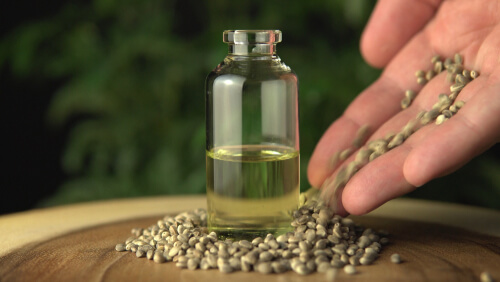
Acid reflux occurs as things in the stomach move up into the esophagus. It can induce a painful and burning sensation in the throat and chest known as heartburn. GERD (gastroesophageal reflux disease) is a health condition where acid reflux takes place often. As per the National Institute of Diabetes and Digestive and Kidney Diseases, around 20% of Americans have GERD.
You have perhaps seen information regarding CBD for GERD treatment. Preliminary research may be promising, but there is no evidence that cannabidiol can treat it. Read on to learn what people know regarding cannabidiol for GERD.
Can Cannabidiol Help You With Acid Reflux?
With other phytocannabinoids, cannabidiol can work through the ECS (endocannabinoid system). Research has associated that signaling system with an array of processes, including metabolism, inflammation and pain.
The utilization of cannabidiol for an array of health issues has increased considerably over the last many years. A study from 2020 checked 376 CBD testimonials on a Reddit forum. Almost every post reported cannabidiol use for psychological issues, but around 4% of the posts disucussed its utilization for digestive conditions. However, there are no scientific pieces of evidence that associate cannabidiol use with better GERD symptoms.
A lot of the recent research about this topic concentrates on phytocannabinoids or THC. Let us discuss what is known thus far.
Phytocannabinoids May Keep Esophageal Relaxation From Happening
The act of the lower esophageal sphincter becoming weaker, is an important reason for GERD. The lower esophageal sphincter is a valve separating the esophagus from the stomach.
The LES may open to allow food to pass into the stomach but usually stays closed to prevent things in the organ from going back into the esophagus. When it is compromised, it is likely to relax at a time it should not relax, causing acid reflux.
As per a 2017 research review, older studies into human beings and animals have discovered that phytocannabinoids, specifically WIN 55,212-2 and tetrahydrocannabinol, seem to inhibit LES relaxation.
When an unusual LES relaxation process gets inhibited, it would mean that less gastric acid could move into one’s esophagus. More research may be essential, but this paves the way for the research of new substances targeting LES relaxation. Limiting the LES relaxation process is among the ways in which cannabinoids such as cannabidiol may be beneficial for gastroesophageal reflux disease.

